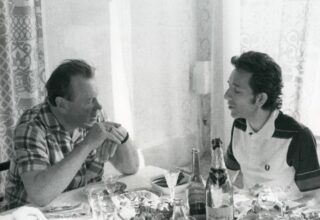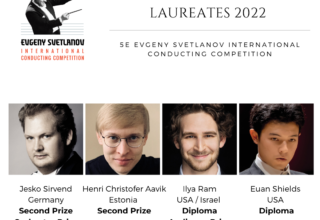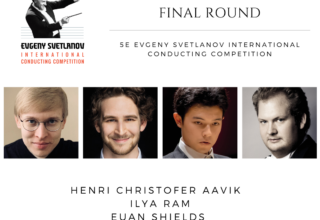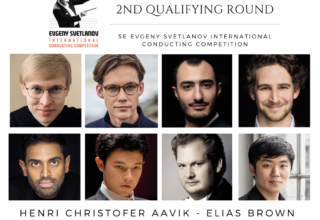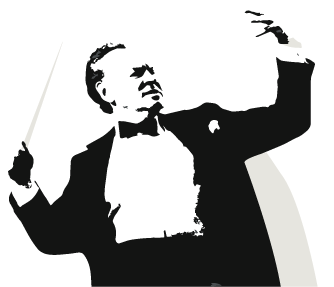MEMOIRS (3/3)
Svetlanov, The Pianist. The Early Years
By Nina Moznaïm Svetlanova
At that time, those who heard him could see the qualities that later strongly developed in his conducting. His sight reading was perfect. Svetlanov was a passionate performer of chamber and symphonic repertoire. He had a beautiful operatic baritone. Svetlanov also loved voice chamber music. His knowledge of songs and arias was extensive.
Once he was introduced to Vera Alexandrovna Davydova, a star of the Bolshoi Theater. Not only did she play very important operatic roles, she also was keenly interested in art songs (not many opera singers were). I well remember Davydova’s and Svetlanov’s song recital in the Moscow Conservatory Hall, comprised entirely of the works of Yuri Alexandrovich Shaporin.
I would like to say a few words about Shaporin with whom Svetlanov studied composition. Shaporin wrote remarkable, beautiful Russian music. Besides, he was a very refined person, a true Russian intellectual, educated, with the knowledge of several languages. Shaporin knew the poet Alexander Blok and set a lot of his poetry to music. The piano parts for these songs are often extremely complex and difficult. I still remember the performance of “Zaklinaniye” (Incantantion). Davydova, who was a very beautiful woman, sang this exceptionally dramatic piece — based on the poem by Pushkin, with tremendous passion. My memory of this recital is still very vivid.
Svetlanov graduated from the Gnessin Institute as a pianist, going on to the Moscow Conservatory to study conducting and composition. During the graduation concert at the Institute, Heinrich Neuhaus was the head of the jury. Svetlanov’s playing impressed Neuhaus who invited him to continue his piano studies in his class. If I am not mistaken, Svetlanov had one piano lesson with Neuhaus. If I am wrong, then maybe two, but not more, as they didn’t seem to ‘click’. Svetlanov brought his favorite piece, “La Valse” by Ravel, to the first lesson, and played very well. I was present at that lesson. First of all, Neuhaus said he didn’t like this piece, and then made a couple of reluctant comments. In brief, it didn’t go well — Neuhaus was a complex person. But it was not that important, however, because Svetlanov played wonderfully anyway, and had a very active life as a pianist at that time. Svetlanov and I played an immense amount of symphonic literature together. I was his partner in this duo. We performed practically the entire Russian and a lot of Western symphonic music for four hands.
In the Soviet Union there was a convention that a new piece needed to be approved for public performance by a State Committee. There were many young composers in USSR; it’s many republics encouraged the development of local arts and music. All these composers wrote in orchestral scores. Few composers were sufficiently proficient at the piano to demonstrate the score for the Committee, a presentation that usually was on one or two pianos, for four hands. Our duo — Svetlanov and I — was in demand for these presentations. Soon, many composers asked us to perform their music before the Committee. Svetlanov himself transcribed the scores for piano. I remember seeing piles of those scores in our home. Everyone knew that a presentation given by our duo usually won a positive result with the Committee. Svetlanov’s art of piano playing was a remarkable phenomenon. Unfortunately, it remained unknown to many.
